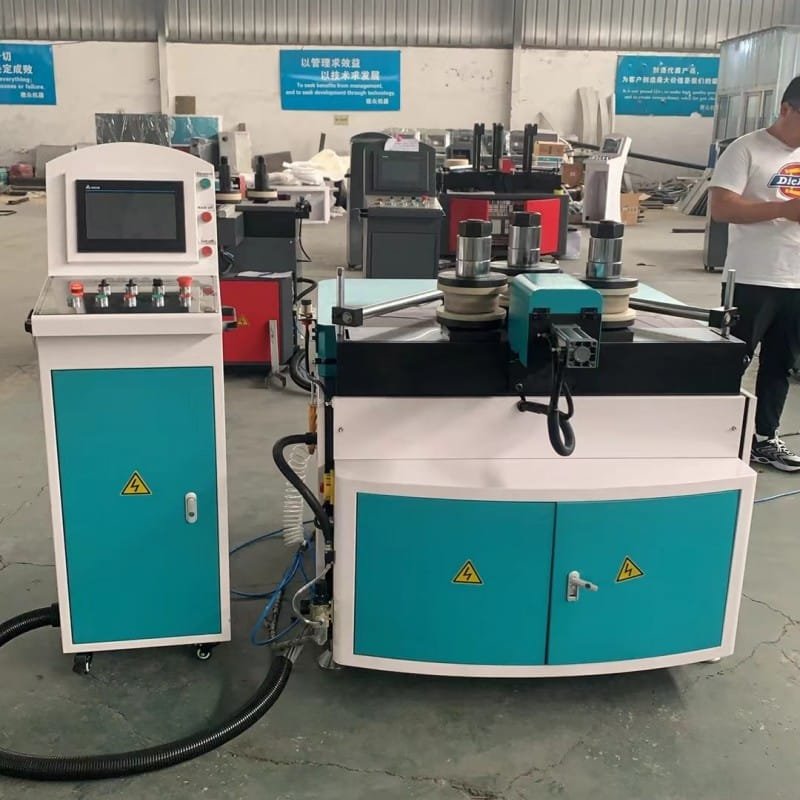In the realm of metal fabrication, precision and efficiency are paramount. Among the myriad of machines that cater to these demands, Computer Numerical Control (CNC) rolling bending machinery stands out as a cornerstone of modern manufacturing. This advanced technology has transformed the way metal is shaped and bent, offering unparalleled accuracy, versatility, and productivity.
The Basics of CNC Rolling Bending Machinery
CNC rolling bending machines are designed to bend metal sheets, plates, pipes, and profiles into desired shapes and angles through a rolling process. Unlike traditional bending methods, such as press braking, rolling bending relies on the gradual deformation of the material around a series of rollers. This technique minimizes material stress and ensures a smoother, more consistent finish.
The core of these machines lies in their CNC system, which controls the movement of the rollers with remarkable precision. By inputting specific parameters like bend radius, angle, and material thickness into the CNC software, operators can automate the bending process, achieving repeatable and predictable results.
Key Features and Advantages
- Precision and Accuracy: CNC rolling bending machines excel in delivering high-precision bends. The closed-loop feedback system of the CNC ensures that deviations are corrected instantly, maintaining tight tolerances even on complex shapes.
- Versatility: These machines can handle a wide range of materials, including stainless steel, aluminum, titanium, and various grades of steel. They are also capable of bending a multitude of shapes and sizes, from small tubes to large structural beams.
- Efficiency: Automation significantly reduces setup time and eliminates the need for manual adjustments during the bending process. This results in faster cycle times and increased throughput.
- Material Savings: The rolling process minimizes material waste and reduces the risk of cracking or deformation, thereby optimizing material usage and lowering costs.
- Scalability: Modern CNC rolling bending machines offer scalable solutions, accommodating both small-scale production runs and large-volume manufacturing needs.
Applications Across Industries
CNC rolling bending machinery finds widespread application in various industries:
- Aerospace: Precision components for aircraft and spacecraft require intricate bending, which CNC machines can achieve with utmost accuracy.
- Automotive: From frame assemblies to exhaust systems, these machines contribute to the production of lightweight, durable automotive components.
- Construction: Structural steel beams, pipes, and plates are bent to shape using CNC rolling bending machines for use in bridges, buildings, and infrastructure projects.
- Furniture and Design: Custom furniture and architectural elements often feature curved metal components, which can be efficiently produced using these machines.
The Future of CNC Rolling Bending Machinery
As technology advances, so do the capabilities of CNC rolling bending machinery. Manufacturers are integrating advanced sensors, AI algorithms, and machine learning to further enhance precision, efficiency, and adaptability. Real-time monitoring and predictive maintenance are becoming standard features, reducing downtime and extending machine lifespan.
Moreover, the trend towards sustainable manufacturing is driving innovation in this sector. Efforts are being made to develop machines that consume less energy, generate fewer emissions, and utilize materials more efficiently.

In conclusion, CNC rolling bending machinery is a cornerstone of contemporary metal fabrication, offering a blend of precision, versatility, and efficiency that is unmatched by traditional methods. Its widespread adoption across industries underscores its importance in shaping the future of manufacturing. As technology continues to evolve, these machines will undoubtedly play an even greater role in driving innovation and productivity in the metalworking sector.


